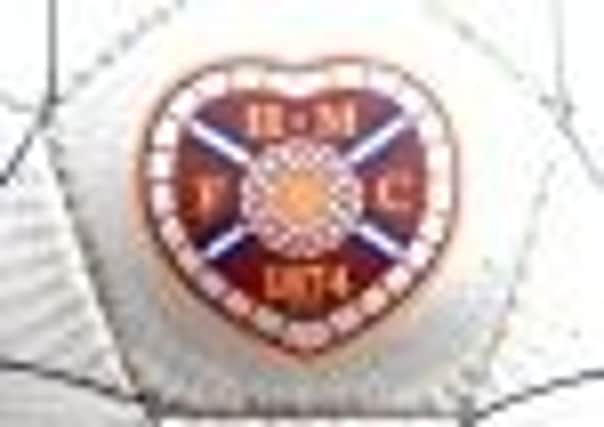Hearts hit with 60-day transfer embargo over latest wage delay


The sanction, arising from manager John McGlynn and a handful of senior players receiving their October salaries a week late, will effectively amount to no more than the Tynecastle club being unable to re-sign free agent Rudi Skacel before 23 December, when the embargo ends.
Skacel has been training with Hearts, prompting speculation he would rejoin the club.
Advertisement
Hide AdAdvertisement
Hide AdYet in light of Hearts’ apparently profound cashflow problems – which on Monday resulted in the SPL handing them a “warning and a reprimand” for late payments in September that had also triggered an automatic transfer embargo – they may have struggled to finance a deal for the Czech international let alone any other free agents.
This context calls into question the effectiveness of the new financial fair play regulations that were supposed to carry real bite and came into force over the summer. As well as a response to Rangers’ collapse, these rules were put in place after Hearts failed to pay their squad on time for four consecutive months last season.
Two SPL clubs were reported to have petitioned that Hearts be placed under a transfer embargo until September 2013 but Doncaster dismissed suggestions the punishment of an SPL sub-committee he headed up with secretary Ian Blair and Dundee United chairman Stephen Thompson was excessively lenient.
“I think there is a meaningful sanction there,” Doncaster said. “This is a second offence. The first offence, we believe, warranted a warning and a reprimand. We think a 60-day registration embargo is the appropriate sanction and we hope very much that we won’t be here again. [But] we didn’t receive any guarantees that there wouldn’t be a repeat. Ultimately we can only judge any breach of the rules as and when it arises – look at the circumstances, hear what the club has to say, and then form a view.
“We considered a whole range of different possibilities. We felt a sporting penalty was required because of the sporting advantage that had been obtained by Hearts by not having to pay players and coaches on time, and the appropriate sporting penalty we believed was a player registration embargo for 60 days.”
Hearts, who have been forced to drive down costs as owner Vladimir Romanov has sought to extricate himself from the role of club financier, will not appeal against, what is effectively, a ban on recruiting free agents until Christmas. “We are satisfied that this matter has now been resolved and accept the sanction imposed by the sub-committee,” was their only comment.
Last month, the club blamed the wages shortfall on the fact that the SPL had only been able to provide their 12 clubs with half the sum from centralised revenues – believed to be around £300,000 – that would normally be forwarded to them at the beginning of the season. As of last week all top flight clubs are now up-to-date with such pay-outs.
Future late payments would generate further disquiet over the inability to solve financial problems supposed to be assuaged by the sale of David Templeton to Rangers and the departure of Scottish Cup final winning manager Paulo Sergio and several players from his victorious squad including Ian Black, Stephen Elliott, Craig Beattie and Skacel.